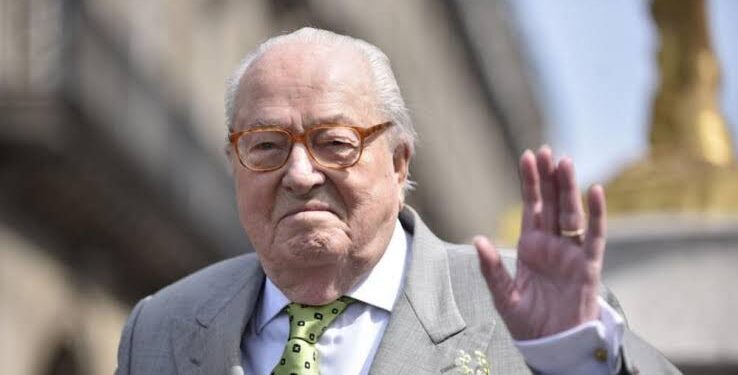Jean-Marie Le Pen, a divisive figure in French politics and the founder of the far-right National Front party (now known as the National Rally), died on Tuesday at 96.
Jordan Bardella, the current president of the party Mr Le Pen established, confirmed his death on X.
“Today I am thinking with sadness of his family, his loved ones, and of course, Marine whose mourning must be respected,” he said.
In a statement to Agence-France Presse, Mr Le Pen’s family revealed that he died at a hospital in Garches, a suburb west of Paris.
His passing comes less than a year after he suffered a second heart attack, which left him in frail health.
In April 2024, a French court granted legal guardianship to his daughters, allowing them to make decisions on his behalf.
Mr Le Pen was one of the most controversial figures in modern French politics.
Known for his fiery rhetoric, unapologetic nationalism, and provocative statements, he dominated the country’s far-right landscape for decades.
He ran for the French presidency five times, notably making it to the runoff in 2002, where he faced off against Jacques Chirac.
While Mr Chirac won in a landslide, the election marked a watershed moment for the French far-right, exposing deep societal fractures over immigration and national identity.
Mr Le Pen was infamous for his scathing remarks about Jews, Muslims, and immigrants, whom he often blamed for France’s woes.
His critics accused him of stoking xenophobia and drawing on fascist tropes, while his supporters praised him for his unwavering stance on preserving French culture and identity.
Born on June 20, 1928, in La Trinité-sur-Mer, a small coastal town in Brittany, Mr Le Pen rose from modest beginnings to become one of France’s most recognisable and reviled politicians.
He served in the French military during the Algerian War and used his experience to bolster his image as a defender of French values.
In 1972, he founded the National Front, which he led until 2011, when his daughter, Marine Le Pen, succeeded him.
Despite his political achievements, his personal and professional life was often controversial.
From court convictions for Holocaust denial to public feuds with his own family, including a bitter fallout with his daughter.







